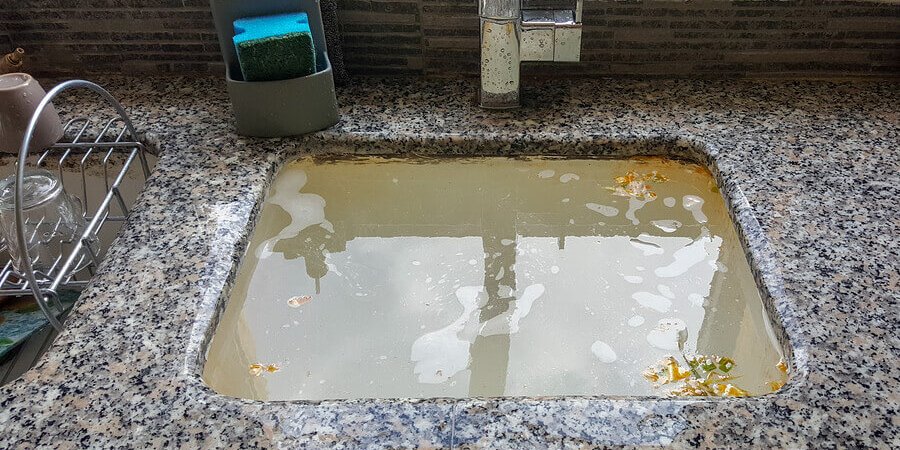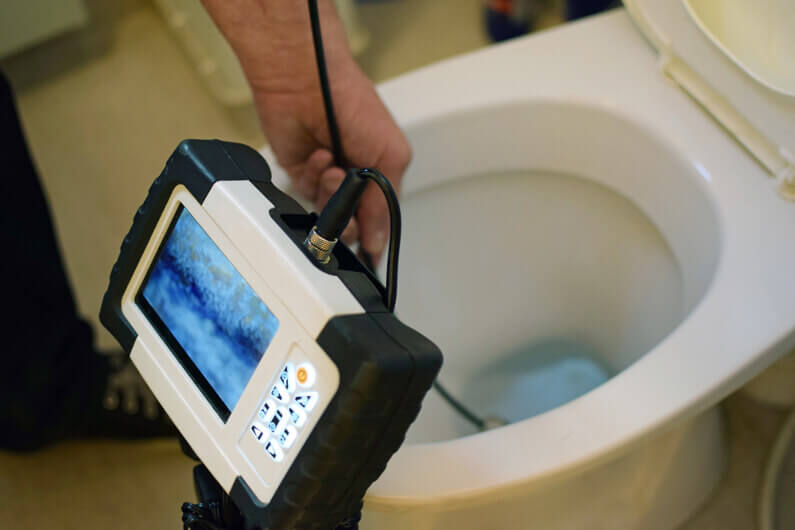Guidelines for Handling a Blocked Drain Prior to Seeking Expert Plumbers
Guidelines for Handling a Blocked Drain Prior to Seeking Expert Plumbers
Blog Article
Every person seems to have their own individual thinking on the subject of Tips for Dealing with Clogged Drains and Sewer Lines.

Introduction
Handling an obstructed drain can be an irritating experience, disrupting daily tasks and potentially creating damage to your residential or commercial property. Nonetheless, prior to reaching out to plumbing specialists, there are actions you can take to resolve the problem on your own. In this overview, we'll discover do it yourself services and safety nets to tackle a blocked drainpipe effectively.
Identifying the Problem
The very first step in addressing an obstructed drain is identifying the signs. Slow water drainage, gurgling noises, foul odors rising from drains, or water backing up prevail signs of an obstructed drain. Determining these indicators early can help stop further complications.
Picking the Right Plumbing Solution
When selecting a plumbing service, think about variables such as experience, licensing, and customer testimonials. Choose a respectable plumbing technician with a track record of top quality handiwork and clear rates practices.
Price Factors to consider
The cost of expert drain cleaning company can differ relying on the severity of the blockage and the plumbing professional's rates. Request quotes from numerous carriers and inquire about any kind of surcharges to ensure openness and stay clear of shocks.
Security Precautions
When attempting do it yourself drain cleansing, focus on safety and security. Use safety handwear covers and eyeglasses to prevent contact with harmful chemicals or germs. Never ever mix various drainpipe cleansing products, as this can generate dangerous fumes.
Case Studies
Real-life instances illustrate the performance of do it yourself options and the significance of timely specialist treatment in dealing with drain obstructions.
Usual Sources Of Obstructed Drains
Comprehending the factors that add to drain clogs is vital for reliable resolution. Common offenders include hair, soap residue, oil, food particles, and international things like sanitary items or paper towels. Tree roots attacking below ground pipes can also trigger substantial clogs.
Do it yourself Solutions
For small obstructions, a number of DIY remedies can be effective. Pouring boiling thin down the drainpipe can assist liquify oil and debris. Sodium bicarbonate and vinegar or a mixture of salt and cooking soda can work as natural cleansers. Using a plunger or pipes serpent to displace blockages is an additional choice.
Devices and Equipment
Having the right devices handy can make do it yourself drain cleansing more reliable. A bettor is a functional tool for removing obstructions in sinks, commodes, and showers. A pipes snake or auger can reach much deeper obstructions, while drainpipe cleaning chemicals can be utilized carefully for persistent obstructions.
Preventive Measures
To avoid future blockages, taking on preventive measures is essential. Mount drain guards or filters to catch hair and particles before they get in the pipes. Frequently flush drains with hot water to dissolve grease buildup, and prevent throwing away oil or strong waste down the tubes.
When to Call a Professional
While DIY remedies can resolve minor blockages, certain indications show the requirement for specialist assistance. Relentless clogs, foul odors regardless of cleaning initiatives, or numerous drains pipes backing up all at once are warnings that necessitate experienced intervention.
Final thought
By complying with the tips outlined in this guide, you can properly take on blocked drains pipes and prevent future plumbing issues. Whether choosing DIY remedies or seeking expert aid, timely action is vital to keeping a healthy pipes system and protecting the integrity of your home.
How to Clear a Clogged Drain Yourself (And When to Call In the Professionals)
What Can Clog a Drain
Dirt Skin flakes Hair Grease Soap scum Food Offset pipes Tree roots Small objects Mineral buildup DIY Tricks to Unclog a Drain
You can fix this! Once you have identified the source of the clog (or have a vague idea), you can try one or a combination of these fixes in order to clear your plumbing.
Wire Hanger or Snake
Untangle and clear out hair from a drainpipe with a homemade snake. Use a straightened-out wire hanger with a 90-degree angle hook to locate the clog and drag out any unwanted material.
Remember not to push the clog further down to where the wire hanger cannot reach! If you need to follow up with a plunger, give it a try. Your efforts might be more successful after it’s been wire-snaked.
If you want to get fancy and don’t have a wire hanger to spare, head to the store and pick up a hand-operated drain snake. You can get one for $10-$30. It may save you the hassle, and provide additional length to reach deep into the clogged pipe.
Plunger
A cup plunger has a suction cup attached to a wooden handle. The rubber creates a seal around the drain, and increases the pressure force of the plunger.
Plunge for 30-second increments to loosen the clog. This may need to be repeated over the course of 15-20 minutes. Once plunged, run the water to flush the remaining material out of the drain.
Remember– never use a plunger if you have used a chemical drain cleaner. These chemicals can splash up from the force of the plunger and cause serious injury or burns.
Boiling Water
Hot water can sometimes break up materials into a flushable amount. Dirt, grease, and soap buildup requires heat in order to unstick from surfaces.
Take your kitchen kettle and heat your water to a boil. Once it reaches a rolling boil, pour it directly down the drain into the blockage. Carefully follow with plunging, if necessary.
Don’t worry if this takes more than one try! It can often take multiple kettles and repeated plunging in order to clear a particularly stubborn clog.
Chemical Drain Cleaner
As a last resort, pick up a bottle of chemical drain cleaner. Drain-cleaning chemicals are potent, and not very good for the environment.
You may need to wear protective eyewear in gloves before handling your bottle of chemical drain cleaner. Follow the instructions printed on the bottle, and flush with water as soon as the instructions allow. Do not follow with plunging.
Baking Soda and Vinegar
As a safer alternative to chemical drain cleaner, baking soda and vinegar can create a chemical reaction that clears tough clogs.
Combine one cup of cleaning vinegar with one cup of boiling water, and set aside. Once you have done this, pour half a cup of baking soda down the drain. Give the baking thirty seconds to settle and cover a large portion of the problem drain.
Following the baking soda, pour down your vinegar and hot water solution. Once the vinegar and baking soda combine, the mixture will bubble and fix. Let this reaction fizzle in the drain for about an hour.
After an hour, follow with a kettle’s worth of hot water. The heat and liquid should flush out any remaining material.
When to Call a Plumber
If your DIY attempts haven’t cleared your clog drain, it’s time to call in a professional. It’s not worth losing access to your kitchen sink or high-traffic bathroom. A clog in a vital area can keep you from the things you’d rather be doing, and derail your routine.
Anytime a clog is causing water to spread is a time to call in a plumbing service. What starts out as a little bit of water can quickly grow into serious, expensive water damage.
Additionally, a serious clog can result in burst pipes or serious leaks. Make sure you know when to take it seriously!
https://myguysnow.com/how-to-clear-a-clogged-drain-yourself-and-when-to-call-in-the-professionals/

I have been very eager about and I hope you enjoyed reading the new article. Do you know anybody else who is looking into the subject? Please feel free to share it. I take joy in your readership.
Click Here To Read More Report this page